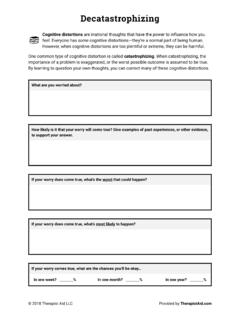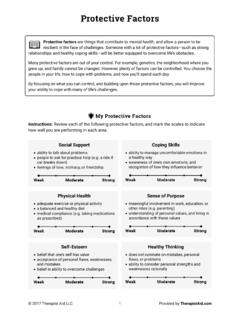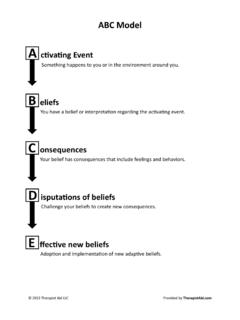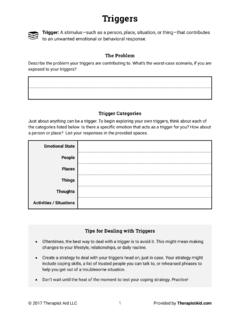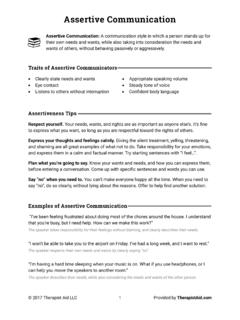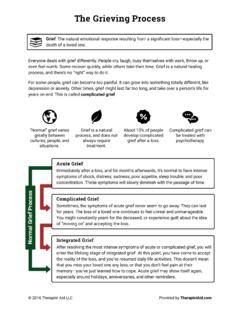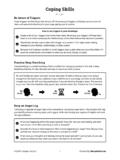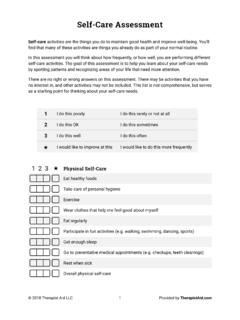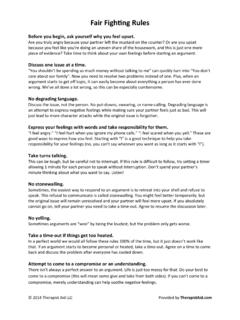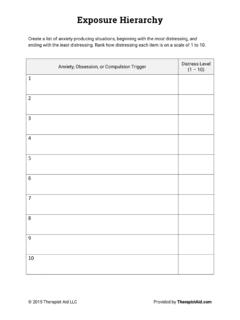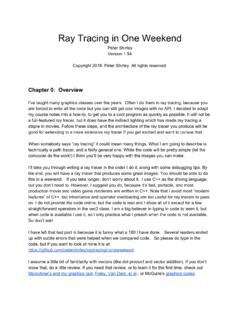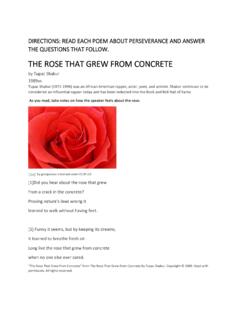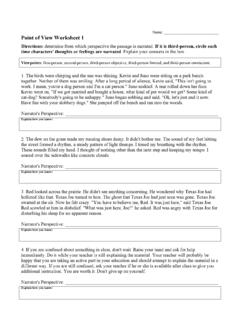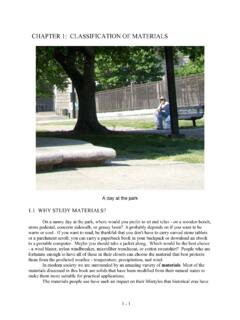Transcription of Mindfulness Skills - Therapist Aid
1 Mindfulness Skills 2015 Therapist Aid LLC Provided by Spending a lot of time in your head causes stress. There are always new things to worry about, conversations to rehearse, and activities to plan. Research tells us that when you live in the moment--that is, getting out of your head and being consciously aware of your surroundings--you will usually feel happier and experience less stress. With enough practice, you will learn to better control your thoughts and feelings. Below are some techniques to help you achieve this goal. Mindful Activity The goal of a mindful activity is to bring your thoughts into the present moment. To practice, first choose any activity where you notice your mind consistently wanders. This could be your commute home, while completing chores around the house, or just about anything else.
2 Next time you do your chosen activity, attend to each of your senses. Below we use the example of going for a walk. It will be best to choose an activity you do regularly so you are sure to practice every day. Vision As you leave your home you immediately notice the bright blue sky, trees, and empty streets. As you pay closer attention you notice flowers along the sidewalk with a slight breeze causing them to tilt to their side every few moments. Hearing Each time the breeze passes, you can hear the leaves rustling in the wind. Occasionally, you hear the hum of a car passing on a nearby street. Birds are chirping somewhere up above. Touch You notice the warmth of the sun and the coolness of the breeze. With each step you feel your foot landing and then pushing off from the pavement.
3 Taste You stop to pick up a coffee for your walk. You hold the drink in your mouth for a moment to savor the taste. Smell When the breeze floats by, you catch the smell of the flowers and the trees. As you continue your walk, you notice the smell of freshly cut grass by a neighboring home. Mindfulness Skills 2015 Therapist Aid LLC Provided by Mindful Meditation When you go about your life, it s normal for thoughts, feelings, and experiences to come and go quickly, oftentimes outside of your awareness. You might say or do something because of how you feel, without noticing the processes that influenced you. During Mindfulness meditation you will create awareness of these processes by mentally taking a step back from yourself and identifying your thoughts, feelings, and physical sensations.
4 1 Find a place free of too much noise or distraction to practice. 2 Sit down on a cushion, the floor, or in a chair. You want to sit up straight to allow easy breathing, but not so straight that you re uncomfortable. 3 Turn your focus toward your breathing. Notice the feeling of the breath entering your body and making its way to your lungs. Pay attention to how your body feels, and what it s like as your breath exits your lungs. Continue to focus on the feeling of breathing. 4 As you practice, your mind will wander. Try not to judge your thoughts--simply accept that they are happening. Notice, as an outside observer: I m having a thought. The same goes for feelings. If you detect sadness, worry, happiness, or excitement, notice how they feel in your body. Acknowledge what you are feeling, even if it s an uncomfortable sensation.
5 Simply notice: I am feeling this way. 5 When the thought or feeling passes, return your focus to your breathing and your body. 6 Try to practice for at least 10 to 15 minutes. If you are more experienced, aim for 30 minutes.
